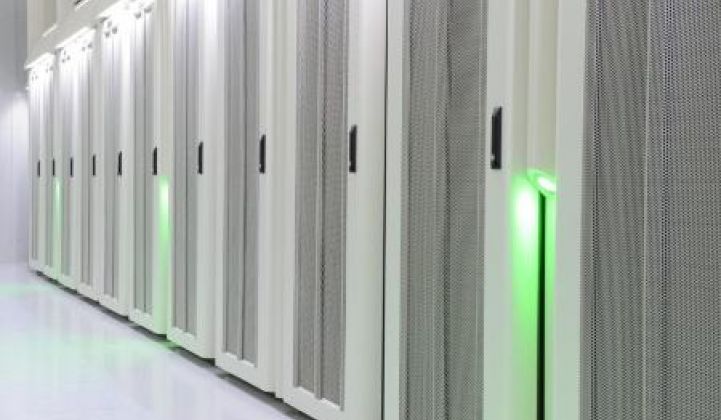In 2009, Canada's second-biggest telecommunications firm, Telus, set a hard target of driving down energy use by 10 percent in a decade.
The company took a look at all of its big facilities, focusing first on the easy job of retiring old equipment and consolidating some operations. But Telus eventually ran into a problem that every company trying to become more efficient encounters at some point -- once the easy savings had been realized, it was time to get deeper.
"In the beginning, we didn't know how to pull it off," said Lloyd Switzer, Telus' senior vice president for network transformation. "We'd never done something like this in a systematic, programmatic way before."
The answer was intelligent efficiency.
As Telus engineers scanned the landscape of companies operating in the space, they found Vigilent, a California-based firm with an intelligent energy management platform for buildings and data centers.
Vigilent focuses heavily on data center cooling, where energy density is highest. The company installs sensors on equipment to measure temperature, humidity and pressure within a facility, feeding that information to a central platform that predicts when air conditioning should be adjusted. The system also features a dashboard that allows facility managers to granularly monitor equipment.
Vigilent claims it is shutting down 40 percent of air conditioners on average over a portfolio of 9 million square feet of data centers in six countries, resulting in average energy reductions of 20 percent. The company's customers include NTT, Verizon, the State of California, Digital Reality and a variety of universities.
Soon after hooking up with Telus, Vigilent installed one pilot system at a data center. The results were immediate.
"Imagine our delight when after one week we were shutting down cooling and seeing savings," said Telus' Switzer. "We saw a reduction of 1 gigawatt-hour in the first facility, which resulted in roughly $100,000 in savings." The payback was eighteen months.
Soon after, three more systems were deployed at Telus data centers. Four more are now in the works.
"The Vigilent system has been our single biggest driver of energy reductions this year," said Switzer.
Rather than just being a customer of Vigilent, Telus executives decided they wanted to be investors. So today, the company announced that its venture capital arm, Telus Ventures, is making an undisclosed investment in Vigilent, giving it a stake in the company and a seat on the advisory board.
"Having them on the technical advisory board is priceless," said Vigilent CEO Mark Housley. "Getting millions of dollars to build the wrong thing might be fun, but it's not going to help deliver something useful."
In 2012, Vigilent raised a $6.7 million round led from Accel Partners. Neither Telus nor Vigilent would disclose the latest investment figure, but Housley said it was "material" and provided solid working capital.
The investment will also help Telus get a stake in the emerging intelligent efficiency space, where startups and energy giants are bringing IT to the built environment in creative ways to reduce energy consumption. Because Telus isn't a global carrier and doesn't have the scale of an AT&T or Verizon, the company wanted to make an early investment in order to get its foot in the door.
"We want to be able to do something innovative, but we want to know that others are going to line up behind it too. We don't want to end up with some orphan technology," said Switzer.
With a growing number of companies entering the emerging intelligent efficiency sector, there will likely be a lot of orphaned technologies to come. Getting an enthusiastic endorsement -- and an investment -- from a demanding telecom customer like Telus is a positive sign that Vigilent won't be left stranded.
Want to know more about how the intelligent efficiency sector is going to evolve? Come to Greentech Media's Avant EE conference on July 29th in San Francisco.



